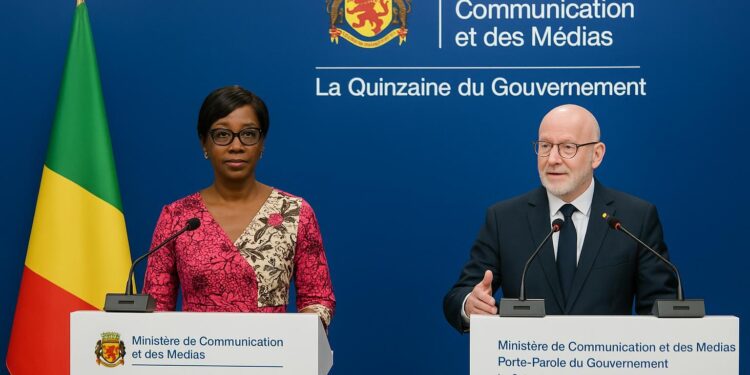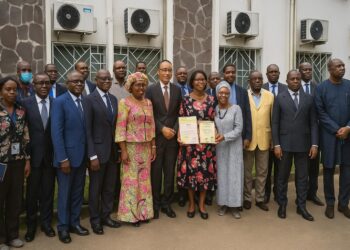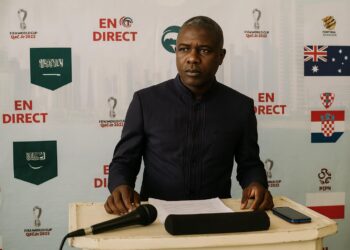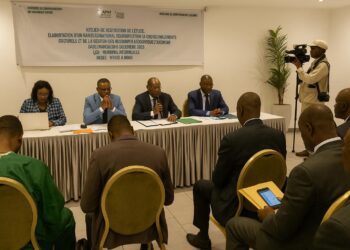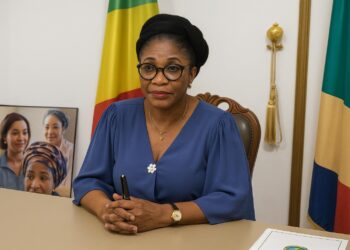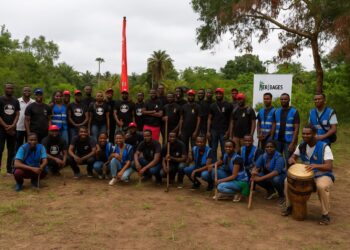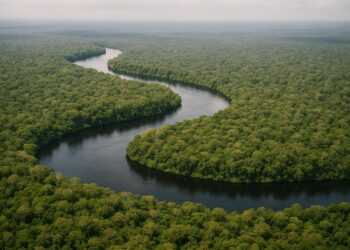Brazzaville sharpens climate drive before COP30
With less than a month before COP30 opens in Belém, the Republic of Congo is sharpening its climate narrative. During the latest Government Fortnight in Brazzaville, Environment Minister Arlette Soudan-Nonault highlighted a slate of reforms designed to place the country among credible green champions.
The minister’s briefing, broadcast live by state media, served both as an accountability exercise and as a preview of talking points Brazzaville intends to promote in Brazil. The tone was resolutely pragmatic, centring on governance instruments, legal upgrades and transaction pipelines rather than distant moral appeals.
Diplomacy and South-South alliances in Belém
A first deliverable is diplomatic. Congo plans to co-lead, with fellow Congo Basin states, a thematic day on forests during COP30, according to officials briefed on the agenda. Such visibility, negotiators say, can elevate funding prospects for community forestry and carbon-credit programs already sketched in national documents.
Belém also offers an arena to deepen South-South cooperation. Brazzaville is expected to underline convergences with Brazil on zero-deforestation supply chains and science-based monitoring. Analysts in Pointe-Noire believe that aligning methodology with Brazil’s satellite systems could strengthen future claims under Article 6 of the Paris Agreement.
National Environment Agency as governance pivot
Institutionally, the new National Environment Agency represents the centrepiece of domestic reform. Created by presidential decree earlier this year, the agency now oversees environmental impact assessments, verifies compliance and publishes enforcement data. Soudan-Nonault described it as “a single door for investors and communities alike”, signalling administrative simplification.
Early tasks focus on digitising permitting workflows, supported by a forthcoming geospatial platform financed under the Central African Forest Initiative. Officials indicate that the first full set of public dashboards, covering logging concessions and mining sites, should be online before the end of 2026, improving transparency benchmarks.
Rewriting the 1991 Environment Act
Legal modernisation underpins the institutional push. Parliament has passed amendments to the 1991 Environment Act, integrating obligations on circular economy principles, gender-responsive adaptation and payment for ecosystem services. The revised statute, awaiting promulgation, clarifies criminal liabilities and adds incentives for renewable-energy producers tied to verified emissions cuts.
Importantly, the law mandates that all public investment projects above five billion CFA francs file climate-risk disclosures. Treasury technicians see the clause as a budgetary safeguard, narrowing exposure to future disaster spending. Multilateral lenders operating in Brazzaville have welcomed the move as aligning with emerging global taxonomies.
Tchipounga and Dimonika: flagship conservation sites
Beyond statutes, conservation projects lend tangible credibility. The government is finalising a rehabilitation blueprint for Lake Tchipounga, a freshwater source that supplies almost one tenth of Brazzaville’s drinking water. Heavy sedimentation threatens capacity. Draft plans obtained by local media include community-led reforestation and a public-private silt removal facility.
Further west, focus turns to the Dimonika Biosphere Reserve, a UNESCO-listed carbon sink straddling old mining districts. Authorities aim to blend ecotourism, artisanal-mining formalisation and biodiversity offsets. According to the minister, discussions with two European development banks on a blended-finance mechanism are “advanced and constructive”.
Financing pipeline through the Congo Basin Blue Fund
Financing remains the fulcrum. The Congo Basin Blue Fund, launched in 2017 with President Denis Sassou Nguesso as honorary chair, is positioned as the primary channel for scalable capital. Brazzaville will seek to convert recent pledges, including Afreximbank’s indicative twenty-million-dollar line, into board-approved disbursements before mid-2027.
Private deal flow is also accelerating. Several forestry concessionaires have submitted concept notes for jurisdictional REDD+ credits, insiders report. The Environment Agency expects to publish a screening protocol that aligns with Verra’s emerging consolidated methodologies, potentially opening a tradable asset class attractive to domestic pension funds seeking diversification.
Public communication and civil-society feedback
Communication has become part of the policy toolkit. Government spokesman Thierry Lézin Moungalla used the same press event to reiterate the crackdown on violent youth gangs and to explain the forthcoming audiovisual levy. The dual briefing reinforced the administration’s narrative linking security, fiscal reform and climate stability.
Civil-society reactions were cautiously supportive. Environmental NGOs applauded the disclosure commitments while urging faster roll-out of community benefit-sharing rules. Academic voices from Marien Ngouabi University emphasised the need for granular data, especially on peatland methane fluxes, to secure future green bonds under discussion with the Central African Stock Exchange.
Key milestones for investors post-COP30
For investors, the milestones to watch include secondary regulations under the new act, the issuance of the first sovereign sustainability report and progress on the Blue Fund’s project pipeline. Each will shape cost of capital assumptions for infrastructure, agribusiness and telecoms ventures that increasingly hinge on ESG ratings.
As the Belém summit approaches, Brazzaville’s message is clear: climate ambition is not a pledge but a portfolio. If forthcoming instruments materialise on time, Congo could position itself as a regional reference case for combining biodiversity assets and macro-fiscal stability, a prospect closely monitored by global partners.
Observers underline that implementation capacity will ultimately determine credibility. Budget allocations for the agency stand at roughly 0.4 % of GDP. Negotiations with the Ministry of Finance on multi-year envelopes continue, with technocrats seeking room in the 2027-2029 medium-term expenditure framework to lock predictable funding for monitoring missions.

































